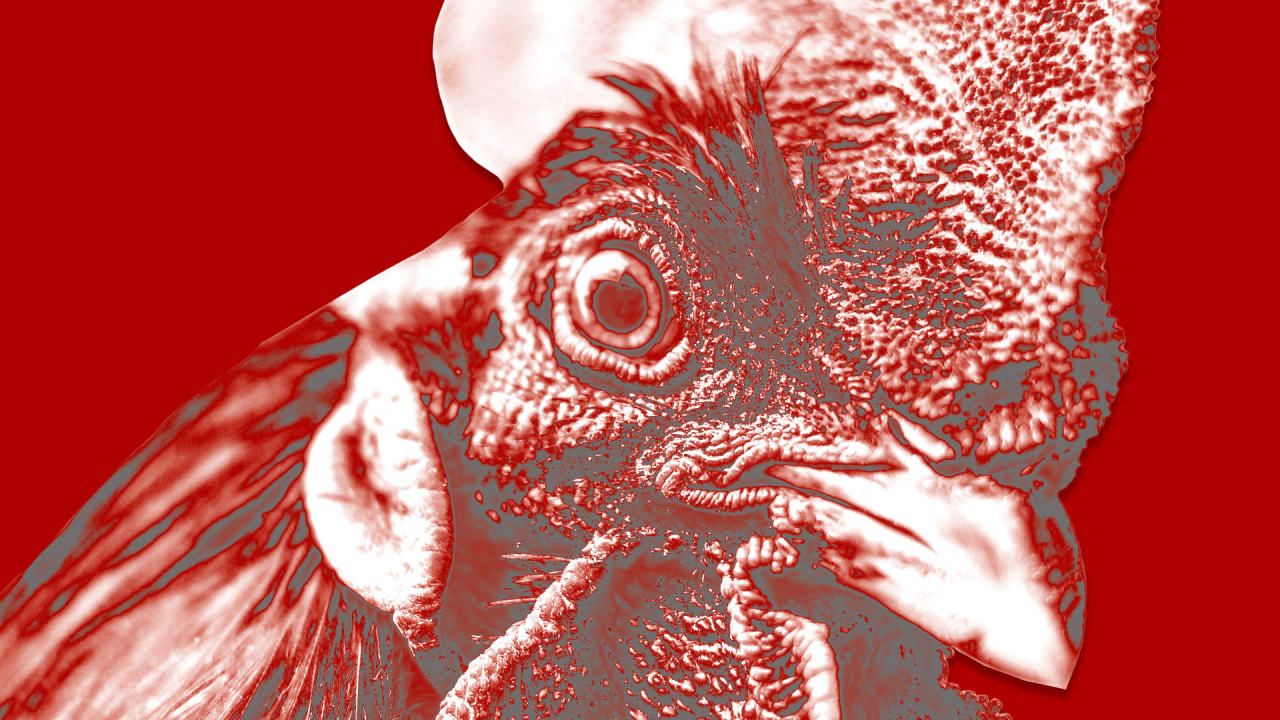Why Chick-fil-A just became the latest brand to reverse course on antibiotics
Chick-fil-A, the fast-food chain known for its chicken sandwiches, is making a significant change to its antibiotic policy, moving away from its previous commitment of “no antibiotics ever” and switching instead to a standard known as “no antibiotics important to human medicine.” “As we looked to the future, the availability of high-quality chicken that meets our rigid standards became a concern,” a Chick-fil-A spokesperson told Fast Company. “This change enables us to not only ensure we can continue to serve high-quality chicken, but also chicken that still meets the expectations our customers count on us to deliver.” The decision comes amid growing concerns about human antibiotic resistance, which has been linked to the widespread use of antibiotics in livestock production. However, Chick-fil-A’s standard means avoiding medications commonly used to treat people and limiting the use of animal antibiotics to cases of actual animal illness. In a statement, the company said “NAE means no antibiotics of any kind were used in raising the animal. NAIHM restricts the use of those antibiotics that are important to human medicine and commonly used to treat people, and allows use of animal antibiotics only if the animal and those around it were to become sick.” Chick-fil-A, which emphasizes its focus on the excellence of its main product (the name’s capital A is intended to indicate that its chicken is “grade A top quality”), will implement its new policy in the spring of 2024. Chick-fil-A’s 2019 pledge to exclusively serve 100% antibiotic-free chicken was hailed as a significant step toward healthier food options and sustainable farming practices. But this reversal has ignited a wave of criticism and disappointment among consumers and advocacy groups. Some customers are calling for boycotts. “Just wanted to let you know that Chick-fil-A just walked back their NO ANTIBIOTICS EVER rule for their chicken,” Alex Clark, a conservative podcast host, wrote on X, formerly Twitter. “You have got to stop eating there.” Others are questioning the company’s commitment to ethical sourcing and transparency in its food supply chain, raising concerns about Chick-fil-A’s brand reputation and customer loyalty. Coming home to roost This shift mirrors a similar decision made by Tyson Foods, one of the poultry industry’s largest companies, last year. Tyson reintroduced some antibiotics to its chicken production after previously eliminating them from some of its poultry in 2015. Panera Bread, another major player in the fast-food industry, recently made a similar switch in its antibiotic policy for pork and turkey products, citing limitations in its supply chain options. The industry-wide trend toward revising antibiotic policies underscores the complex challenges faced by food companies in balancing consumer demands, supply chain constraints, and public health considerations. It reflects a broader effort within the industry to address concerns about antibiotic resistance.

Chick-fil-A, the fast-food chain known for its chicken sandwiches, is making a significant change to its antibiotic policy, moving away from its previous commitment of “no antibiotics ever” and switching instead to a standard known as “no antibiotics important to human medicine.”
“As we looked to the future, the availability of high-quality chicken that meets our rigid standards became a concern,” a Chick-fil-A spokesperson told Fast Company. “This change enables us to not only ensure we can continue to serve high-quality chicken, but also chicken that still meets the expectations our customers count on us to deliver.”
The decision comes amid growing concerns about human antibiotic resistance, which has been linked to the widespread use of antibiotics in livestock production. However, Chick-fil-A’s standard means avoiding medications commonly used to treat people and limiting the use of animal antibiotics to cases of actual animal illness.
In a statement, the company said “NAE means no antibiotics of any kind were used in raising the animal. NAIHM restricts the use of those antibiotics that are important to human medicine and commonly used to treat people, and allows use of animal antibiotics only if the animal and those around it were to become sick.”
Chick-fil-A, which emphasizes its focus on the excellence of its main product (the name’s capital A is intended to indicate that its chicken is “grade A top quality”), will implement its new policy in the spring of 2024.
Chick-fil-A’s 2019 pledge to exclusively serve 100% antibiotic-free chicken was hailed as a significant step toward healthier food options and sustainable farming practices. But this reversal has ignited a wave of criticism and disappointment among consumers and advocacy groups.
Some customers are calling for boycotts. “Just wanted to let you know that Chick-fil-A just walked back their NO ANTIBIOTICS EVER rule for their chicken,” Alex Clark, a conservative podcast host, wrote on X, formerly Twitter. “You have got to stop eating there.”
Others are questioning the company’s commitment to ethical sourcing and transparency in its food supply chain, raising concerns about Chick-fil-A’s brand reputation and customer loyalty.
Coming home to roost
This shift mirrors a similar decision made by Tyson Foods, one of the poultry industry’s largest companies, last year. Tyson reintroduced some antibiotics to its chicken production after previously eliminating them from some of its poultry in 2015.
Panera Bread, another major player in the fast-food industry, recently made a similar switch in its antibiotic policy for pork and turkey products, citing limitations in its supply chain options.
The industry-wide trend toward revising antibiotic policies underscores the complex challenges faced by food companies in balancing consumer demands, supply chain constraints, and public health considerations. It reflects a broader effort within the industry to address concerns about antibiotic resistance.






















